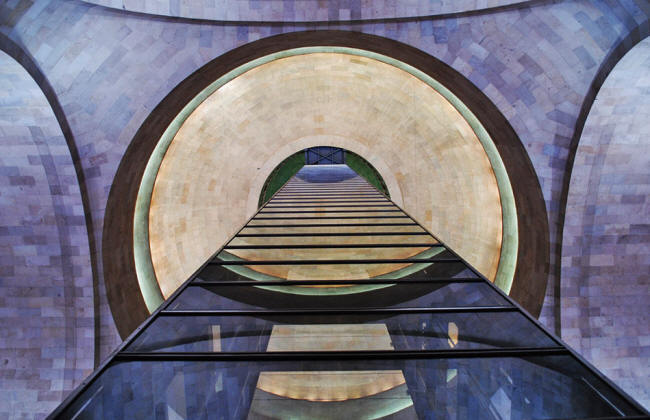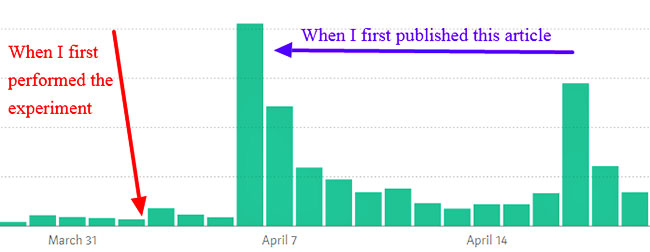|

by Shelly Fagan
April 02,
2019
from
TheAscent Website

Photo by Austin Chan
on
Unsplash
I set out
to hack
the computer
simulation
that controls
our reality.
Spoiler alert,
it went much better
than I
anticipated.
Yes, you can try
it, too.
In 2003, Swedish
philosopher
Nick Bostrum proposed we may be
existing in a virtual reality orchestrated by our descendants who
wanted to recreate their ancestors.
He suggested that if
technology advanced to the point where we could create such a
virtual world, we would likely create multiple copies.
If our descendants managed this feat sometime in the future, Bostrum
argued, then the odds were that you and I are one of many copies
living in
a computer simulation rather than
the base reality.
If Bostrum is correct, this implies we are simply reliving an
earlier existence. Our lives, or at least the major milestones, are
predetermined, our choices already made, and our decisions only
seem to be spontaneous.
Others propose we are living a computer game where we have little
control. Our choices do not change those events we are destined to
experience.
Astrophysicist Neil deGrasse Tyson thinks the odds are 50-50
that we are living in a computer simulation.
Others think it is pretty
much impossible that we aren't.
What Religion
Tells Us

Photo by Charles "Duck" Unitas
on
Unsplash
The idea of this is hardly new.
The ancient Gnostics believed we were under the control of
malevolent Archons. These beings were minions of
the Demiurge, a kind of false god
who stands between man and the transcendent God of the
universe.
Archons rule mankind through eons
of devious trickery. Our souls are trapped in a kind of prison on
this planet until we gain sufficient knowledge to free ourselves
from the cycle of control.
In many eastern philosophies, the world is considered to be
an illusion, or maya. Whether you
call it a computer simulation, or something else, the dynamic is the
same.
Reality is not what it appears to be and we are being
duped...
What Can We Do
With This Intel?

Photo by Joshua Sortino
on Unsplash
I wondered if that was the case, could we disrupt the simulation -
if even for a moment.
If everything is predetermined, then any attempt to disrupt
the illusion from inside a simulation is also predetermined.
My ancestor may have tried this same trick and this would be
anticipated by the program.
We have no way of knowing if our choice is truly a rebellion or
something we were destined to try.
If we are merely playing roles in a computer game, then the program
knows what I am going to do and is able to sabotage my efforts. Or,
choices are the natural extension of our biology.
In other words, the simulation would have already anticipated
my attempts because it has a godlike view of all my actions either
because I did it in the past, I am predictable or it controls what I
experience.
Reality
Tunnels

Photo by MICH ELIZALDE
on
Unsplash
If we live in a simulation but
free will "does exist," it is likely
our agency is restricted to those choices to keep us on a path to
major life events.
It doesn't matter if we go to dinner or a movie with the blind date,
as long as we end up meeting so we can marry them. Some might call
this "destiny."
If we have a specific milestones, the control over us may be coded
into our preferences and our dislikes to keep us on track.
So life isn't so much a path, but a tunnel...
We can move about within
the narrow focus of our reality but we are always traveling to
predetermined destinations. We are only free to choose the options
presented to us.
But Choice A or Choice B
always leads to predetermined Outcome Y from the script. Or we are
hardwired to always choose A because we have never had a preference
for B.
The idea we have free will
is an illusion inside the illusion...
Our
options are limited because the outcome has already been decided.
We can move within our reality tunnel, but we can't move outside it.
Can we move
the tunnel?
-
If we take a detour
from our life path, might we meet someone who gives us a piece
of information that changes everything?
-
Would going off script create a disturbance in the simulation
which forces it to recalibrate and loosen control until it sorts
it out?
-
What happens when we introduce true randomness into our reality?
A Thought
Experiment

Photo by Joanna Kosinska
on
Unsplash
What if you could go
to the refrigerator and instead of choosing an apple or an
orange, you were presented with completely random choice that
you had absolutely no influence over?
What if you were given the option of a
kumquat?
Perhaps you give this a
try and like it.
You might take advantage of opportunities to try other new foods.
You may become more aware of other choices and options you
previously ignored. As a result, you are no longer defaulting to
Choice A.
In other words, what would changing yourself, or your own mindset
through a wholly novel experience do to the simulation?
I decided to find out...
Enter Fatum
A group of researchers have been toying with the idea of "digging
rabbit holes in reality."
The US-based group refers
to themselves as "randonauts." The group reports
on Reddit. A rough outline is
posted
on Github.
Fatum Theory is based on deterministic fate and its
byproducts. The project is a collective of participants interested
in using quantum randomness to introduce novelty into their own
reality tunnel.
The theory and science
behind it is cumbersome and complex and probably best suited for
more scholarly publications - and written by someone in academia.
One organizer related to me that it takes up to a month for most
people to grasp the project. What I have posted here is a very
watered down introduction to the theory. Researchers have their own
theories how this works.
Basically, using a quantum source, the researchers
have programmed
a bot to find locations. These random points are
outside of the researcher's predetermined life path.
By visiting these
locations, the Randonaut briefly moves off script and
disrupts the simulation. They also change their own view of the
world.
Even though these coordinates are local, they are often in areas
that are novel and previously unexplored by the researcher.
Randonauts are encouraged to notice signs, graffiti or pick up
innocuous items as "tokens" of their experience.
Many Randonauts report a sense of despair or dread
discouraging them from participating in the research.
Although it may be predetermined that you would travel "somewhere",
there is no way for the simulation to predict the location provided
by the quantum source.
The "where" is truly
random and novel...
The general consensus is to have a clear intent of how you want to change in your reality tunnel, then set out to
explore three locations.
My Experience

Photo by Daniel Ghio
on
Unsplash
After my invitation to participate in the research, was able to
grasp the goals only after reading and rereading the source
documents over several days.
I decided my intention was to improve my writing career.
I chose three random
locations and spent an afternoon exploring.
- The first
struck me as a place I did not want to ever live in and I could
not get out of the neighborhood fast enough. That experience was
somewhat depressing. Honestly, if I hadn't
planned to write this article, I would have abandoned the
experiment.
- The second was something like my dream home, in a very
upscale, yet hidden neighborhood. I did not know this place
existed even though it was within a mile of my home.
- The third was
an area of a public park I had never visited. There was a subtle
shift in my perspective resulting in a greater sense of hope
about life in general. I immediately noticed that people were
friendlier and a few waved to me as I drove to the locations.
Starting the next day,
everything in my life changed for the better.
In the span of a week, I
had more positive events occur than had happened during any given
year in the past decade. I was floored...
The changes included multiple job offers - some from applications
made six months earlier - to receiving surprise money in the mail.
The attention my stories garnered nearly tripled.
From the day before to
the day after my quantum explorations, I had a five fold increase in
traffic.
If this article gets a good deal of attention, then you will know
why.

I think
this graph speaks for itself...
| 







